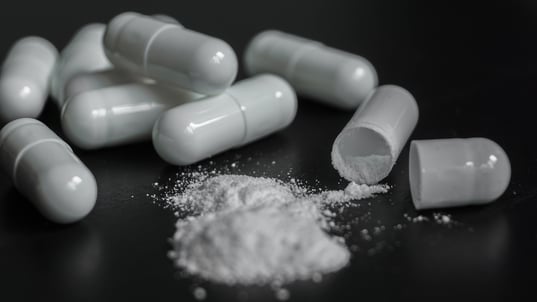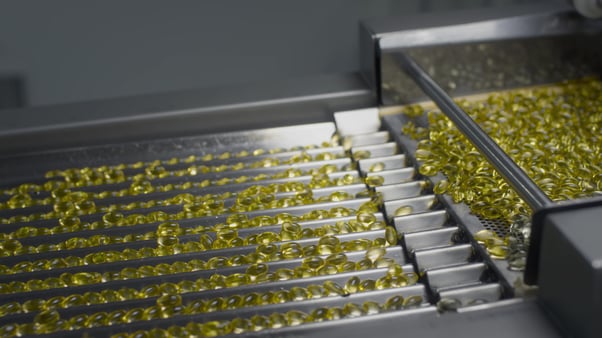Reviewed and Approved by Shelly Blackwell, Senior Director, Dietary Supplement and Tobacco, EAS Consulting Group, a Certified Group company.
1-Minute Summary
- Adherence to FDA regulations in 21 CFR 111 is crucial for ensuring dietary supplements meet necessary safety and quality standards.
- The U.S. FDA stipulates that you need to use “appropriate” tests to verify that your components, in-process, and finished products meet established specifications.
- “Appropriate” tests should adhere to scientifically valid methods that are fit for the intended use and comply with recognized industry standards.
- Partnering with an ISO 17025-accredited and GMP-compliant laboratory can ensure accurate and standardized testing.
Regulations help keep our dietary supplements safe for consumers, but understanding the complex maze of sections, subsections, and paragraphs can frustrate the most experienced quality control professionals.
In this post, we explain the U.S. FDA's dietary supplement testing requirements as defined in 21 CFR 111. Precisely what testing must you perform on your products to meet regulatory requirements?
We answer it here. Let's dive in.
Introduction to 21 CFR 111: Testing Requirements for Dietary Supplements
You can't work in this industry long before you start seeing "21 CFR 111" in your sleep. It is one of the most important regulations for firms engaged in manufacturing, packaging, labeling, or holding operations for dietary supplements.
It lays out the Good Manufacturing Practices (GMPs) that must be followed in the industry. The primary goal is to safeguard consumer health, in large part as covered in Part 111 by requiring you to establish specifications for the identity, purity, quality, strength, and composition of your ingredients and finished products.
These specifications set the baseline for dietary supplement testing requirements, so that's where we'll start our discussion.

Everything Starts with Establishing Your Specifications
Understanding your testing requirements begins with understanding the specifications you must establish for your manufacturing process, components, in-process production, and finished batches. 21 CFR 111.70 defines four areas where specifications are required:
1. Manufacturing Process Specifications
- Any point, step, or stage in the manufacturing process where control is necessary to ensure the quality of the dietary supplement... 21 CFR 111.70(a)
2. Component Specifications
- For each component that you use in the manufacture of a dietary supplement, you must establish component specifications for the identity, purity, strength, composition, and potential contaminants. 21 CFR 111.70(b)
3. In-Process Production Specifications
- Any point, step, or stage in the master manufacturing record where control is necessary to help ensure that specifications are met for the identity, purity, strength, composition, and potential contaminants. 21 CFR 111.70(c)
4. Finished Batch
- Specifications for the identity, purity, strength, composition, and potential contaminants of each finished batch of the dietary supplement must be established. 21 CFR 111.70(e)
With this information, now we can look more closely at dietary supplement testing requirements.
What are the Testing Requirements for Dietary Supplement Components and Finished Products?
21 CFR 111.73 states plainly that "You must determine whether the specifications you establish under § 111.70 are met."
So, how do you accomplish this? Again, the regulations state it plainly:
Dietary Supplement Component Testing Requirements
Before using a component, you must...
- Conduct at least one appropriate test or examination to verify the identity of any component that is a dietary ingredient.
- Conduct appropriate tests or examinations to confirm the identity of other components and determine whether other applicable component specifications established in accordance with § 111.70(b) are met.
- You can rely on your supplier's Certificate of Analysis (CoA) to meet this requirement provided that...
- You qualify the supplier by confirming their test results.
- The CoA includes a description of the test or examination method(s) used, limits of the test or examinations, and actual results of the tests or examinations.
- You maintain documentation of how you qualified the supplier.
- You periodically re-confirm the supplier's certificate of analysis.
- Your quality control personnel review and approve the documentation setting forth the basis for qualification (and re-qualification) of any supplier. 21 CFR 111.75

FDA regulations stipulate you must test and verify the identity of every component that is a dietary ingredient.
In-Process Production Testing Requirements for Dietary Supplements
- Monitor in-process points/steps/stages to ensure the quality of each finished batch of dietary supplement.
- Determine if in-process specifications are met.
- Detect any deviation or unanticipated occurrence that may lead to failure in meeting specifications. 21 CFR 111.75(b)
Finished Product Testing Requirements
For a subset of finished dietary supplement batches that you identify through a sound statistical sampling plan (or every batch), you must verify that it meets product specifications for identity, purity, strength, composition, and potential contaminants. The regulations explain how you must do this:
- Select one or more established specifications for identity, purity, strength, composition, and potential contaminants and, using appropriate tests or examinations, determine if the finished product meets the specification. 21 CFR 111.75(c)
Dietary Supplement Testing Requirements: Adding It All Up
As you can see, the regulations state plainly that you must...
- Test for the identity of any component that is a dietary ingredient and determine whether specifications for purity, strength, composition, and potential contaminants are met either through testing or relying on a qualified vendor CoA.
- Test to confirm the identity of other components and determine whether other component specifications are met.
- Test finished products to ensure final-product specifications are achieved prior to release.
It's important to note that the regulations also require you to monitor the production process and "determine" that your in-process specifications are met. While the regulations don't say you must "use appropriate tests" in your determination, this is another area where you may need to perform testing.
If you receive an out-of-specification (OOS) result, cGMPs require you to conduct an OOS investigation, as we explain in this article.
In addition, if you choose to qualify your suppliers' CoA, you will need to perform testing to verify their results. For more, view this on-demand webinar about developing and implementing a supplier verification program from our regulatory arm, EAS Consulting Group.
What Does "Appropriate Tests" Mean?
This discussion raises an important question: What does FDA mean by "appropriate tests or examinations"?
A test method should check the following boxes to be deemed "appropriate" for testing dietary supplements:
- Scientifically Valid Methods: The chosen method must be accurate, precise, and consistent, and should be based on established scientific principles.
- Fit-for-Purpose: The method must be suitable for its intended use. For example, specific tests are needed for different dietary ingredients or contaminants.
- Compliance with Standards: Any chosen method must be consistent with official compendia and industry-recognized standards, including AOAC, USP, FCC, BAM, EPA, and others.
One way to ensure you meet these requirements is to partner with a dietary supplement testing laboratory that is compliant with GMP standards found in 21 CFR 111 and is ISO 17025 accredited, such as Certified Laboratories. This relieves you of worrying about choosing the right methods for your products.
It's also helpful to work with experts who understand these complex regulations, such as those with EAS Consulting Group, to ensure you remain compliant.
Ensuring Compliance with Dietary Supplement Testing Requirements
Navigating the regulatory landscape of testing requirements for dietary supplements can be challenging.
By understanding and strictly following 21 CFR 111.70, quality assurance professionals can ensure that dietary supplements meet the necessary safety and efficacy standards. Key to this compliance is conducting appropriate tests or examinations that are scientifically valid, fit for purpose, and aligned with recognized standards.
For more detailed guidance and support on dietary supplement testing, including requirements to sell your supplements on Amazon, simply reach out to our team for answers to your questions.

